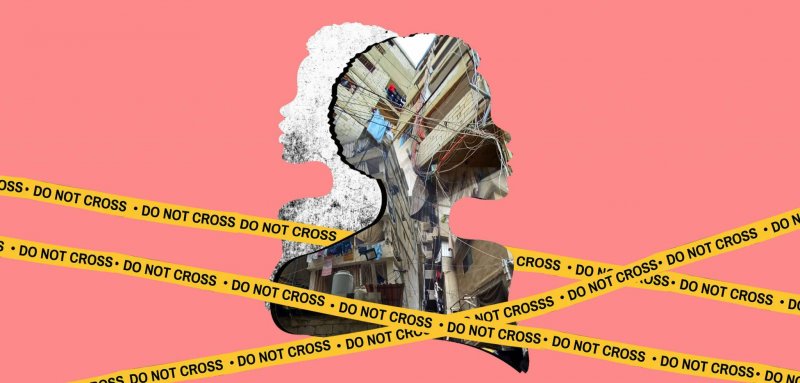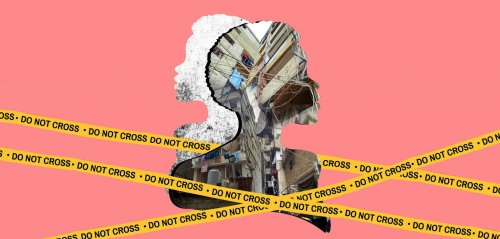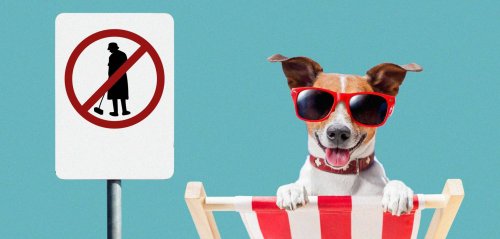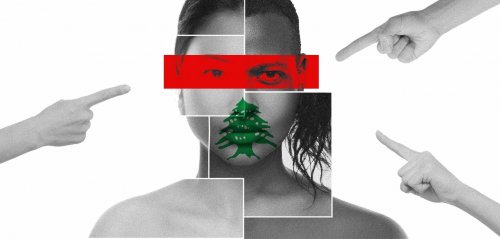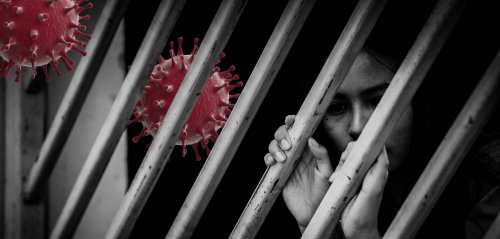"It was already a difficult period in general, let alone if you live in a house inhabited by 28 people using two shared health facilities, or another house inhabited by about 30 people using a single health facility!" Maysa (pseudonym, as requested by the source) begins with these words using her foreign language to express the difficult situation that male and female foreign workers experience while pursuing their livelihoods in a country that has been going through poor economic and political conditions for years.
On February 21, 2020, the first case of COVID-19 was recorded in Lebanon. Soon after, the crises besieging the Lebanese people quickly intensified in a terrifying manner, amid a monopoly on all preventative materials, tools, and medicines that could be the hope to save the lives of people affected by the pandemic. This all came accompanied by the collapse of the health sector, as if the pandemic had come to join the recent madness that struck Lebanon.
While the people of Lebanon were drowning under attempts to survive this deadly virus — with tightly sealed doors amid mandatory social distancing — there were neighborhoods nearby that Lebanese people do not usually tread, and that now bear scars from the neglect, fear, and racism they have experienced ever since. The weight of the pandemic had also come to burden those whose lives were already burdened by the hardships of life within a country where there are no minimum requirements for decent living.
Maysa, a foreign worker who came to Lebanon from an African country, went through a difficult and harsh experience during the COVID-19 pandemic. "All I tried to do was survive with the least possible damage, because we were forced to hide our infection in the case we had been infected from all the places we work in, or from those who share housing with us. If one of us was infected, it meant that everyone was infected... But we had to hide it, otherwise it wouldn't be clear what our fate will be, whether it’s dismissal from work or racial and discriminatory treatment even worse than before," she adds.
"Everyone was afraid to let us into their homes", "We were forced to hide our Covid infection", "We couldn't even afford disinfectants".. Migrant workers in #Lebanon tell Raseef22 of their impossible living conditions during the #Coronavirus pandemic
The foreign worker continues, "Everyone was afraid of letting us into their homes at that time. I sometimes worked part-time during the pandemic, and most housewives were treating us in a way that hurt our feelings and humiliated us. We had to enter barefoot and wear two masks. They would ask us to clean and sanitize the floors and windows, but if we touched something like the cups and mugs, the lady there would rush to clean and sanitize it after us, in an annoyed way, as if we were carrying the virus."
She stresses, "It was very painful for me. I can only say that it was a very difficult period, because the discrimination towards us increased even more. If we passed by someone, we could feel their fear, it was as if we were carrying the virus for sure."
Things were not much different with Aydin, a mother of two. She says, "The pandemic was difficult and tiring, and was filled with fear, discrimination, and violence directed against us. People were afraid to go up with me in the same elevator. Because of my black skin, I could see the discriminatory looks aimed at me. The looks people directed at us on the streets were extremely uncomfortable. Even employers became afraid to allow us into their homes, and this also made our living situation much more difficult, as it was hard to protect ourselves from this pandemic and protect our children."
The difficulty of this living situation is most evident in the presence of children. Aydin says, "The ones I feared for the most were my children, especially the discrimination inflicted upon them. Many children were forbidden from playing with them. They kept crying and were feeling very upset because they had to stay at home, and I would look at them, unable to do anything but feel sad and frustrated, because they had no freedom."
She adds that she was often unable to cover the expenses of her two children. "At that time I wasn't even able to secure shampoo for my children. We also weren't able to buy disinfectants. That's why we were trying to manage with the aid of our neighbors and those around us. That’s also why I would sometimes use the same mask for several days. I would use it when I'd leave the house and then hang it up after I return," she says.
Video clip detailing the poor living conditions of migrant workers in Lebanon. [This report was produced with the support of Maharat Foundation and the Internews organization within the Rooted in Trust (RiT) project]
Days of Fear
Even her suffering from contracting the virus was not easy. Aydin recounts, "I woke up that morning with sharp pain in my head, as if I had a cold, and my body temperature rose. That's when I knew I had gotten the virus. We couldn't avoid the pandemic, because in the end, we are 15 people in one house where we share the same bathroom, which means that there was no escape from passing the infection to my children or to others in the house. I did not go out while I was infected with Covid, and I didn't contact any organization to ask for help because I didn't know at all that there were organizations that could help."
This is not the only reason that migrant workers in Lebanon hid the illness from others, including their housemates, and did not seek help. Aydin adds, "I was also scared that if someone found out, the entire building would be obligated to quarantine, and also because we're black, and racial discrimination was already being practiced against us everywhere. I was afraid to go to the hospital because I felt like I would die if I went. I knew it was necessary to quarantine myself so as not to infect anyone, but I was sometimes afraid to tell my roommates about my infection. I just isolated myself at home."
"We lost a colleague to the virus. He died without us being able to ask for help. I will never forget that day. We were crippled by fear.. When he caught the virus, we were all afraid we'd be subjected to abuse and have to leave. He died a few days later"
When Maysa was also infected with the virus, she didn't tell anyone from her family or those who live with her. "I knew that I was infected with it because of the known symptoms. I went through some difficult and harsh nights, where I was afraid that I was going to die. I used to boil ginger, lemon, and cinnamon so I wouldn't have to task for help or go to the hospital," she recounts. There is no scientific evidence of the effectiveness of herbs in the treatment of COVID-19.
In particular, Aydin was afraid that one of them would die from the virus because they were too afraid of seeking help. "That time was terrifying," she says. "I was so scared that I couldn't imagine losing someone... But we were trying to get by."
Unfortunately, what she had been so afraid of, eventually happened. She retells, "We lost one of our colleagues to the pandemic; he died without any of us being able to seek help for him. I will never forget that day. We were crippled by fear. I think Covid is affected by how strong or weak the immune system is, and maybe that man's immunity wasn't strong enough to fight this infection. When he contracted the virus, he could no longer breathe and the symptoms were severe. His wife was afraid to call and ask for help so that the neighbors wouldn't notice that there was a case in our place of residence. Everyone was afraid that we would have to leave the building or be subjected to abuse."
In a sad tone she finally says, "Several days later, he died. We were all afraid to touch him because of the virus. His body stayed inside for two days and then we asked for help from an organization that I don't remember the name of. They helped us bury him and I don't even know where they had buried him. Everything that happened was because we didn't have proper residency papers and were afraid of other things. That's what stopped us from helping him."
Maysa points out that COVID-19 has exacerbated their already miserable situation due to the crisis in Lebanon, "Our situation was dire. The economic crisis hit Lebanon, and we lost our jobs after the situation became more difficult. Even before the pandemic, we weren't living a safe life. Back then, I also lived in an apartment with 30 people. The places we lived in were unsuitable for living, and we were unable to stay safe from harassment or diseases that could be passed on from shared bathrooms, or even feel safe on a psychological level. We have always been haunted by fear and discrimination, but this time it was worse than ever. It was like an endless horror..."
Failure and discrimination in response plans
In April 2020, the Anti-Racism Movement (ARM) in Lebanon launched an appeal urging the Lebanese "government, international organizations, and local initiatives to implement inclusive and non-discriminatory response plans" to the COVID-19 pandemic, considering that there are around 1.5 million non-Lebanese people in Lebanon. However, most official response plans do not take this into account, making them severely flawed and putting the entire Lebanese and non-Lebanese population at risk.
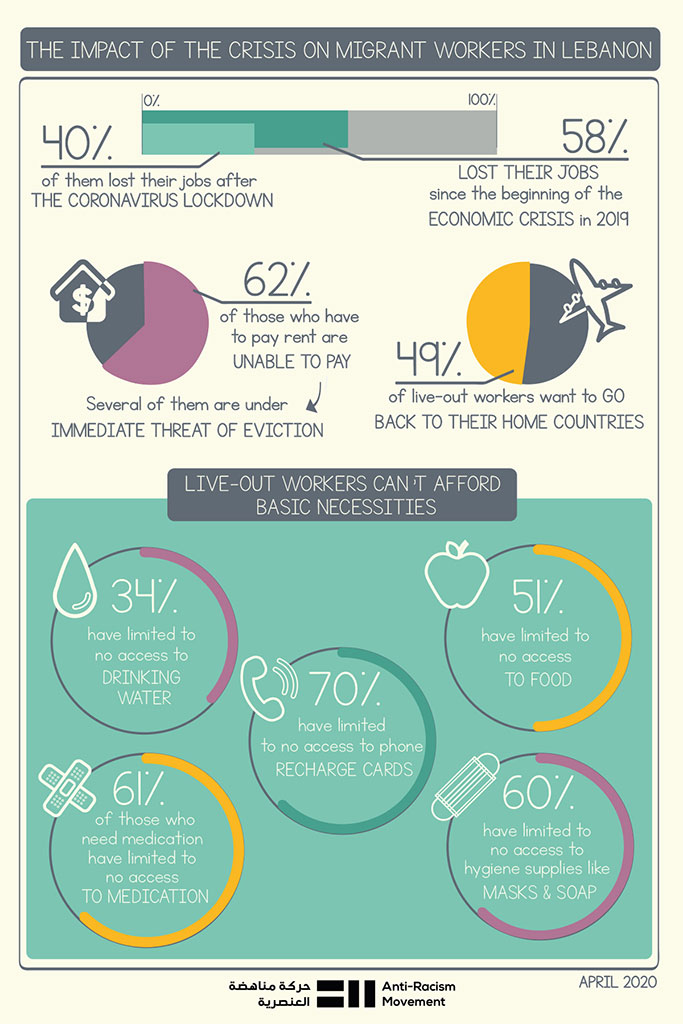
Excerpt of infographic [Source: Anti-Racism Movement - ARM]
The Anti-Racism Movement warned of the seriousness of the living conditions associated with the spread of the pandemic. This puts refugees, workers, and independent migrant domestic workers at higher risk of contagion for many reasons, most notably the reluctance of refugees and migrants to go to the hospital to get tested or treated for fear of getting arrested for holding expired residence permits.
Many of these people "live in overcrowded camps or apartments and do not have any facilities for self-isolation, which means that one person infected with COVID-19 can lead to a drastic increase in cases". All this comes in addition to the fact that many of them have to work to secure their food and pay for rent, so they are forced to come into contact with other people, and have to use public transport to move around. In addition, most "have limited access to clean water, disinfectants, gloves, and masks."
"All I tried to do was survive with the least possible damage".. Migrant workers under the mercy of Covid in #Lebanon; A "marginalized group with an unknown fate, crippled by fear, awaiting laws that'll do them justice and give their cause better attention"
Meanwhile, the 'This is Lebanon' movement urged migrant workers to take vaccinations since many were afraid. For example, Aydin says, "My children and I didn't get vaccinated, because I do not trust it. I think if I take it, I might die or something bad will happen to me."
In Lebanon, attempts to raise awareness and vaccinate migrant workers remain "timid and insufficient", especially in light of the scarcity and absence of comprehensive and safe response plans, especially for marginalized groups.
What can be understood is that the magnitude of the damage to migrant workers is so great that this marginalized group of people cannot receive the necessary treatment if they contract any disease, not just Covid. Therefore, this group to this day remains marginalized, with an unknown fate, and crippled by fear, as it awaits laws that'll do them justice, and associations that'll give their cause better attention.
This report was produced with the support of Maharat Foundation and the Internews organization within the Rooted in Trust (RiT) project.
Raseef22 is a not for profit entity. Our focus is on quality journalism. Every contribution to the NasRaseef membership goes directly towards journalism production. We stand independent, not accepting corporate sponsorships, sponsored content or political funding.
Support our mission to keep Raseef22 available to all readers by clicking here!
Interested in writing with us? Check our pitch process here!
